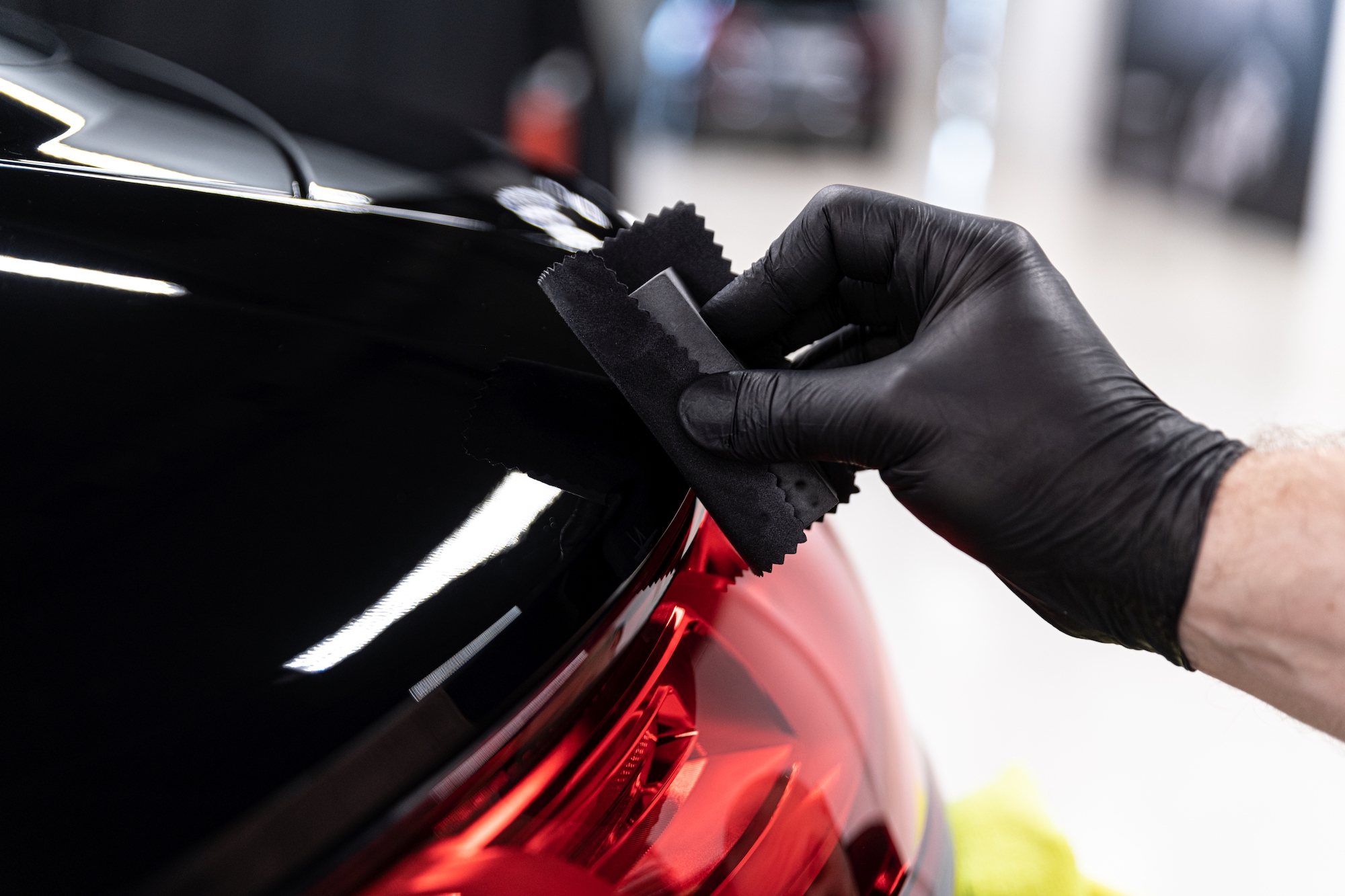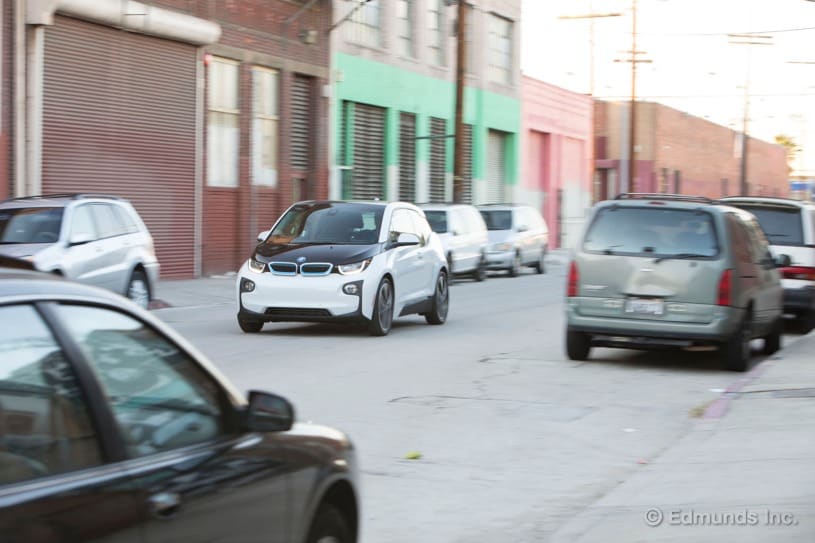Wicked $1.6-million off-road coupe cranks up Dakar action for amateurs
Like clockwork, every few years for over a decade, some car manufacturer, designer or exec feels obliged to dream up an off-road sports car. Unlikely from the start, these vehicles usually make for a few buzzy videos and headlines, then disappear quietly before being largely forgotten. The all-new Prodrive Hunter looks like it could be a more serious proposition, or at least it comes from a more serious background. Billed, in an egregious overstatement, as the world’s first all-terrain hypercar, the Hunter brings Dakar-proven design and engineering to the high-dollar sports car market, letting any novice pilot their own fast-paced all-terrain adventure.
We’re not really willing to call the Hunter a hypercar or supercar because 600 hp isn’t nearly enough for either designation these days. Perhaps Prodrive is thinking that it’s hypercar-level for an off-roader, but when you have everyday car and truck brands fielding 700-hp pickups and SUVs, 600 horses, no matter how wild they run, simply don’t add up to a hypercar.
So, it’s a sports car then. And it’s in the unfortunate position of following a long line of ill-fated off-road sports car concepts and projects that includes the Audi Nanuk Quattro, Zarooq Sand Racer (and Laffite G-Tec X-Road that kind of followed) and Camal Ramusa. Forgive us if we missed a few. The Hunter does bring something that none of those past cars did, however: a Dakar pedigree. The new street-legal car is a direct descendant of the Hunter T1+, raced to a second-place podium finish by Sebastian Loeb, Fabian Lurquin and the Bahrain Raid Xtreme team at Dakar 2022.
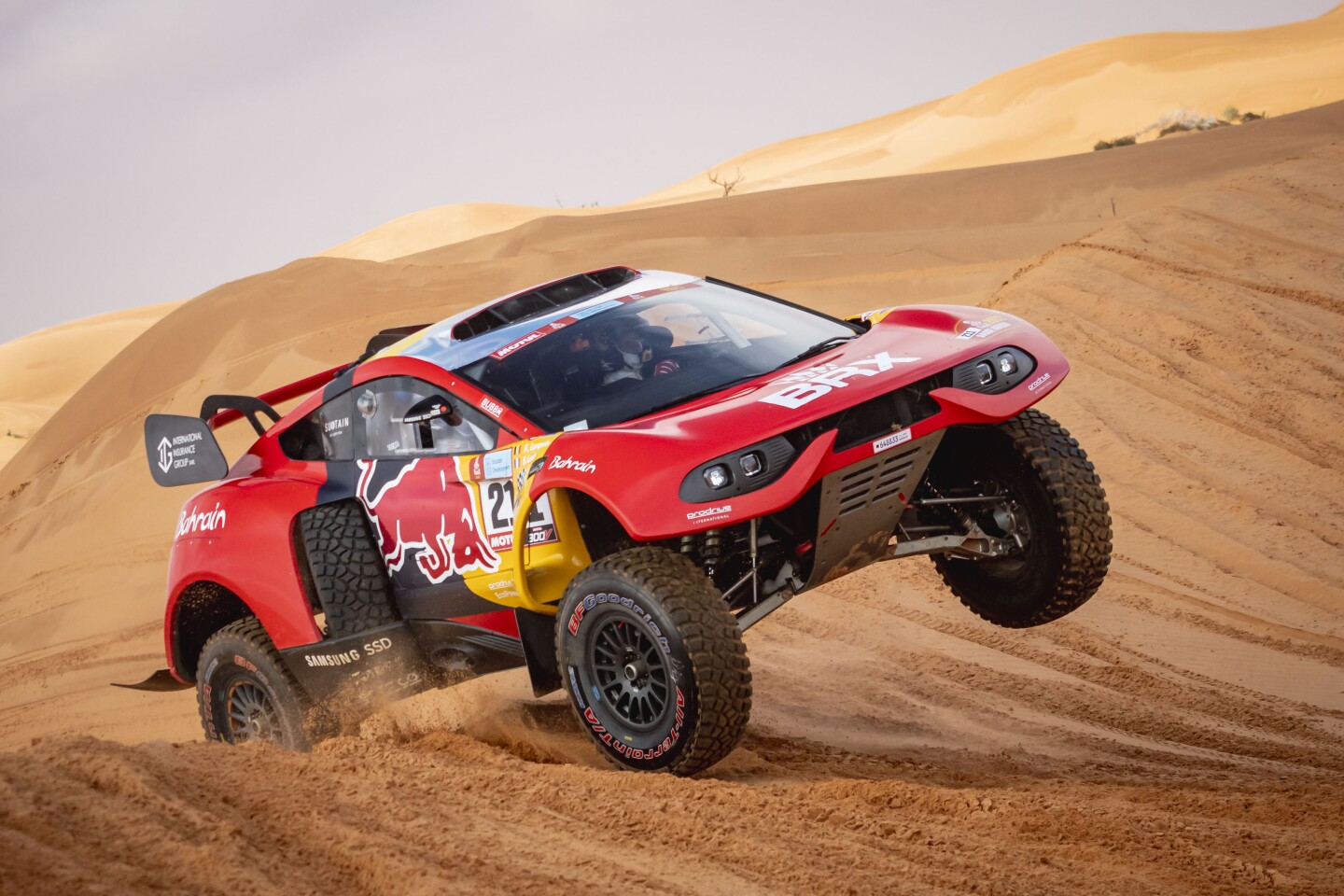
Prodrive
Interestingly enough, without race circuit regulations constraining it, Prodrive has gone even bigger with the consumer Hunter. It retains the Dakar car’s 3.5-liter twin-turbo V6 engine but massages 50 percent more power for the 600 bhp (447 kW), which goes along with 516 lb-ft (700 Nm) of torque. It adds in a six-speed paddle-shift transmission for smooth, millisecond-quick shifts and sends power out to all four wheels via a 4WD system. That power line would be enough for a sub-four-second 0-62 mph (100 km/h) and near-186-mph (300-km/h) top speed, according to Prodrive’s math, but that would entail putting something quicker than those clunky 35-in off-road tires on the ground. Buyers will be happy with those 35s when swimming through sand or maneuvering over tall rocks, though.
“We took the deliberate decision to keep the Hunter as close to the original as possible,” explained Prodrive chairman David Richards. “It’s about giving owners the opportunity to experience what it is like to drive Loeb’s Dakar car across the desert, but with all the comforts of a road car and the ability to drive it from your home, through a city, to any destination of your choice.”
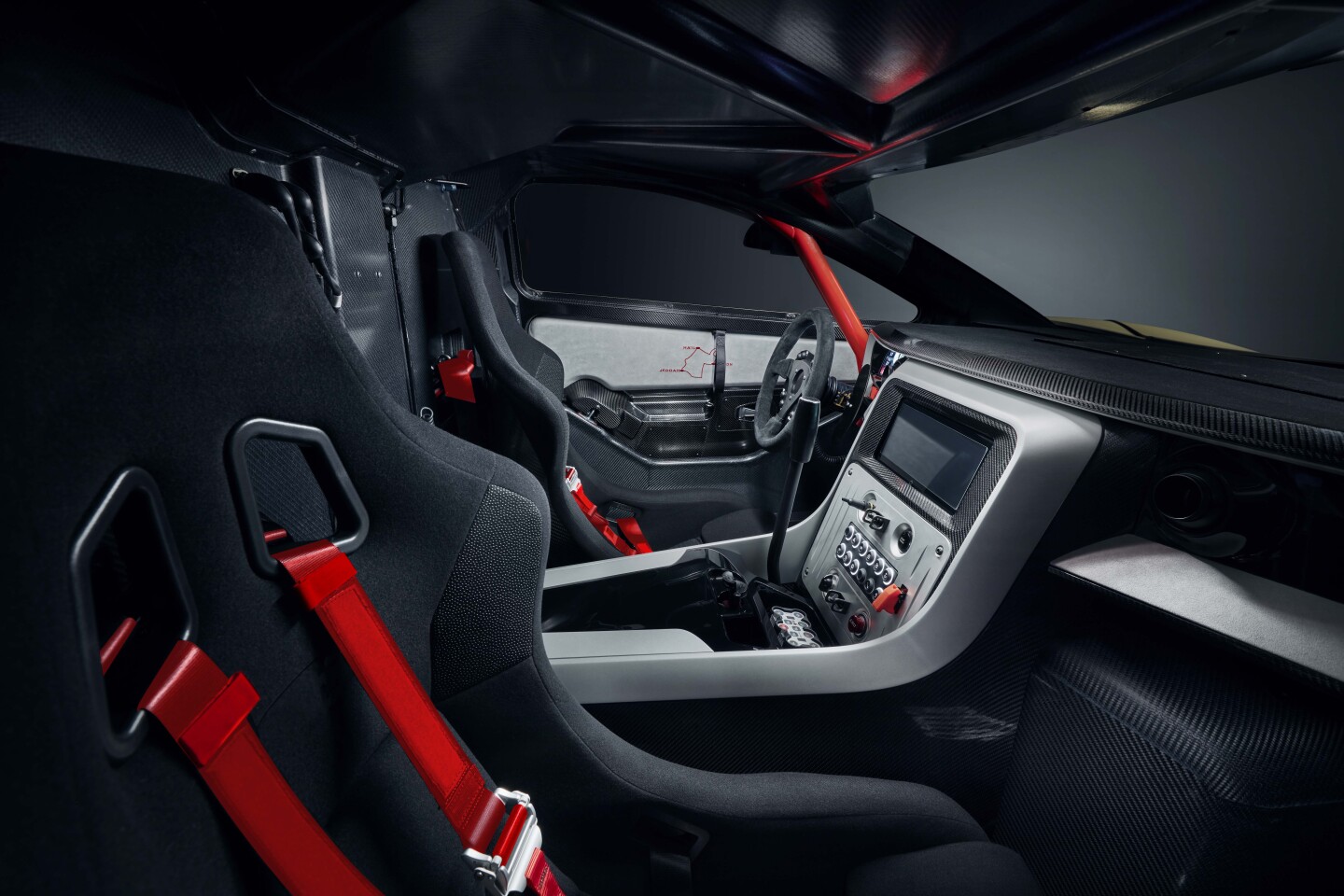
Prodrive
Prodrive stresses that the road comforts are concentrated inside the doors, where former Jaguar and Aston Martin designer Ian Callum did some work to complement the exterior design he created for the Dakar racer. The two-seat cabin still looks pretty race-spec to us, though, combining carbon fiber seats, six-point harnesses, bare roll cage bones and exposed carbon all around. The large, bright digital instrument panel and navigation system are things you might see in a premium road car, and a highway-friendly center console keeps the driver in command with its stack of tactile controls.
The Hunter wears carbon fiber and natural-composite bodywork atop its high-tensile steel space frame, and save for being stripped of its race car livery and half-concealed spare side tires, the body looks barely altered from the Dakar car. That’s good or bad, depending upon what you’re looking for – we tend to prefer the silky smooth Italian bodywork that’s rolled out of the houses built by Giugiaro, but the high-riding Hunter and its skid-plate chin should be much better prepared for actual real-world off-roading. Double wishbones with dual adjustable dampers at each wheel devour bumps with up to 400 mm (15.7 in) of travel, 50 mm (2 in) more than the actual Dakar Hunter T1.
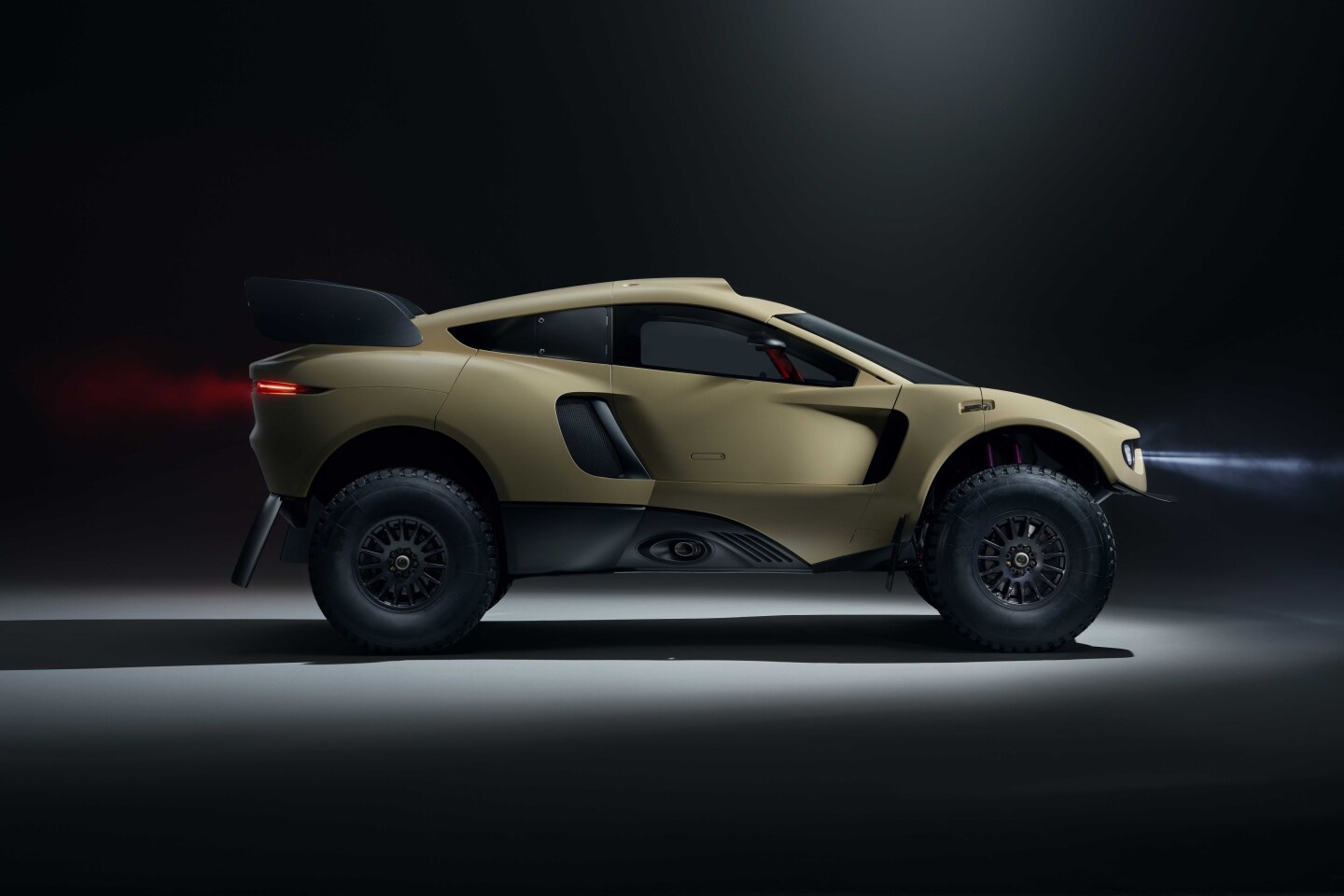
Prodrive
Unsurprisingly, Prodrive developed the Hunter with the Middle East in mind, undoubtedly pinning it as the perfect combination of great wealth, supercar fanaticism and rugged, roadless lands. The company says it is currently touring the region with its first development vehicle, offering test drives and locking in buyers at a starting price of £1.25 million (approx. US$1.64 million) apiece. It plans to begin production later this year.
Source: Prodrive





